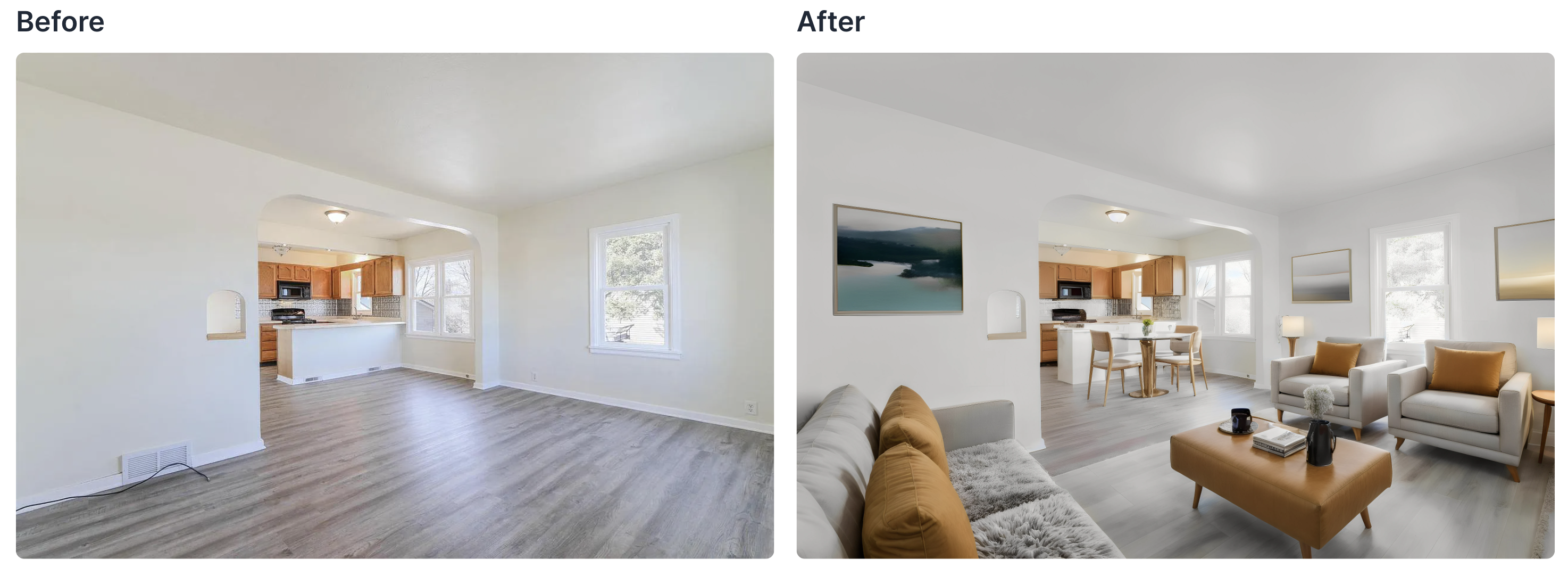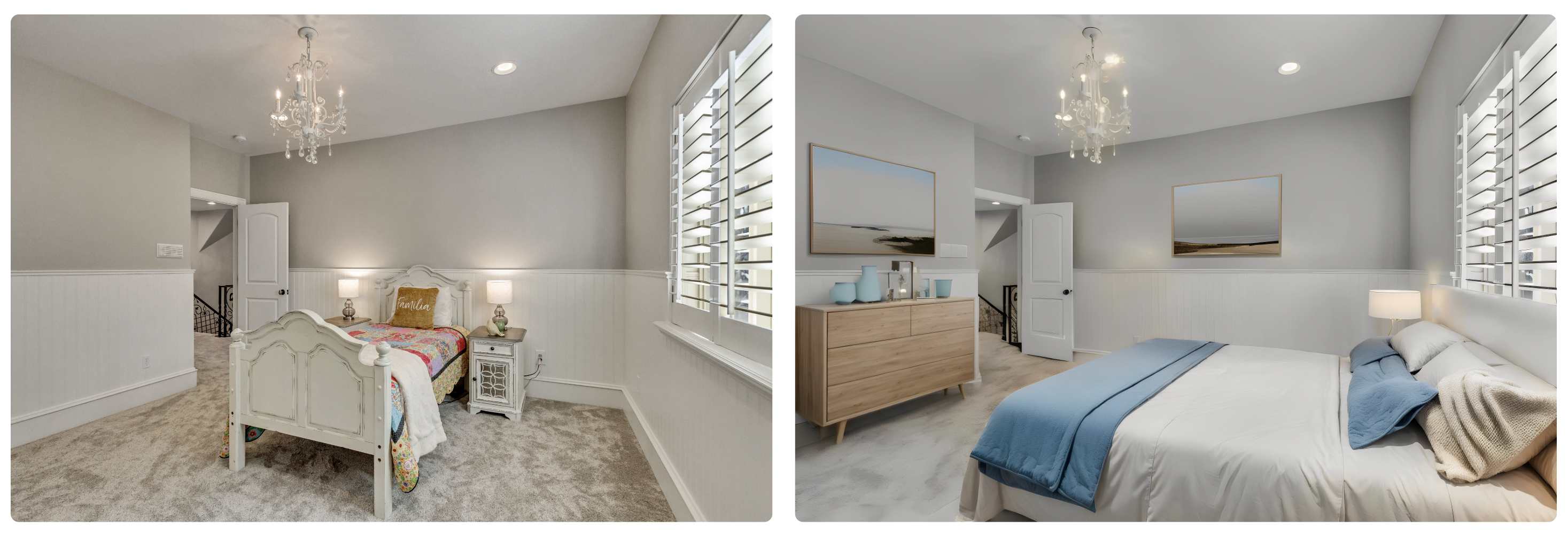Virtual Staging AI helps realtors digitally furnish rooms within seconds
House staging is a significant part of the real estate industry, and while realtors have traditionally staged houses physically before posting a listing, it’s an expensive and time consuming process. A startup called Virtual Staging AI is making it possible for realtors to virtually stage a house with the help of Generative AI.
Virtual Staging AI, which is part of the Harvard Innovation Lab, currently has 4,500 monthly paid subscribers and is looking to transform the real estate and staging industry. The startup bootstrapped to $1 million in ARR over the past ten months and is generating over half a million renders per month.
The startup’s co-founder and CEO Michael Bonacina told TechCrunch that during his search for an apartment in Boston to attend Harvard, he came across a listing that allowed viewers to envision what the space would look like furnished. Bonacina, who had an interest in computer vision, decided that he wanted to enhance that experience and make it easier for realtors to feature it in their listings.
After taking a class about startup research and development, Bonacina and fellow Harvard student, Mikhail Andreev, decided to build a virtual staging startup to help real estate professionals and home sellers save time and money.

Image Credits: Virtual Staging AI
The startup’s tool allows realtors to add furniture to images of empty rooms within seconds. Instead of having to share images of empty rooms in a listing, the tool gives realtors realistic images of furnished rooms. Realtors can choose to turn an empty room into a bedroom, living room, office, playroom, etc.
Realtors can also use the tool to remove furniture from images and replace it with different furniture. For instance, if an image includes mismatched furniture, the startup’s tool can remove it and replace it with modern furniture.
If you don’t like how an image turns out, you can revise it as many times as you like.
Bonacina acknowledges that while there are many AI tools on the market for generating images, they can’t be applied to real estate or virtual staging because you can only change a limited number of things in an image while staying true to the actual property.
“If you put an empty room into DALL·E, it might turn the window into a wall painting, or it might add an additional door or something,” Bonacina said. “That’s obviously misrepresenting the property. Something very specific to the needs of real estate is required.”
Virtual Staging AI’s model is able to analyze the 3D structure of a room and understand where the floor, roof, mirrors and doors are located. The AI model then chooses the best-fitting furniture based on the realtor’s preferences.

Image Credits: Virtual Staging AI
While realtors could hire someone to digitally stage a room using tools like photoshop, Virtual Staging AI promises a cheaper and faster way to do so. The startup’s cheapest plan costs $12 per month and includes six photos, while the most expensive plan costs $69 per month and comes with 250 photos.
Bonacina also says it was important for the startup to build something that is easy-to-use compared to other Generative AI tools. According to the National Association of Realtors, the median age of all real estate agents in the association in the United States is 60, which is part of the reason why the company wanted to create an easy and accessible tool for all realtors.
Virtual Staging AI hasn’t raised any external funding yet, but Bonacina and Andreev pooled together $250,000 from personal funds, and their friends and family, to get the startup off the ground.
Real estate has continued to evolve over the years, going from only offering in-person showings to facilitating virtual tours. It’s no surprise that artificial intelligence, which has transformed industries like healthcare and robotics, is also bringing advancements to the world of real estate.

